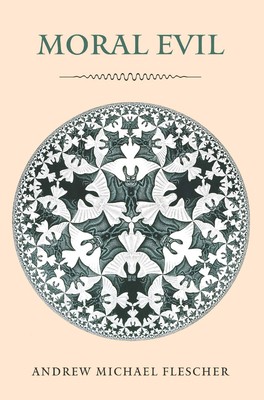
- We will send in 10–14 business days.
- Author: Andrew Michael Flescher
- Publisher: Georgetown University Press
- ISBN-10: 1626160104
- ISBN-13: 9781626160101
- Format: 15.2 x 22.6 x 2 cm, minkšti viršeliai
- Language: English
- SAVE -10% with code: EXTRA
Reviews
Description
Moral evil--evil caused by human beings--seems to be part of the human condition. But why? Does evil really exist, and if so, what exactly is it? Ethicist Andrew Flescher illuminates this dark mystery by proposing four interpretations of evil, drawing on philosophical and theological sources. The first model is evil as the presence of badness, a traditional dualistic model represented by Manicheanism; the second model is evil leading to goodness through suffering, a theological interpretation known as theodicy; the third model is evil is the absence of badness, that is, evil as a social construction; and the forth model is evil as the absence of goodness, in which evil exists in lieu of the good--the "privation" thesis staked out nearly two millennia ago by Christian theologian St. Augustine. In the final chapter of the book Flescher connects the description of evil as "privation" endorsed by St. Augustine to an Aristotelian theory of virtue that sees altruistic habit formation as the crux of the well-lived moral life. It is this account, Flescher claims, that the most plausible and most hopeful approach to the reality of moral evil.
EXTRA 10 % discount with code: EXTRA
The promotion ends in 22d.11:32:27
The discount code is valid when purchasing from 10 €. Discounts do not stack.
- Author: Andrew Michael Flescher
- Publisher: Georgetown University Press
- ISBN-10: 1626160104
- ISBN-13: 9781626160101
- Format: 15.2 x 22.6 x 2 cm, minkšti viršeliai
- Language: English English
Moral evil--evil caused by human beings--seems to be part of the human condition. But why? Does evil really exist, and if so, what exactly is it? Ethicist Andrew Flescher illuminates this dark mystery by proposing four interpretations of evil, drawing on philosophical and theological sources. The first model is evil as the presence of badness, a traditional dualistic model represented by Manicheanism; the second model is evil leading to goodness through suffering, a theological interpretation known as theodicy; the third model is evil is the absence of badness, that is, evil as a social construction; and the forth model is evil as the absence of goodness, in which evil exists in lieu of the good--the "privation" thesis staked out nearly two millennia ago by Christian theologian St. Augustine. In the final chapter of the book Flescher connects the description of evil as "privation" endorsed by St. Augustine to an Aristotelian theory of virtue that sees altruistic habit formation as the crux of the well-lived moral life. It is this account, Flescher claims, that the most plausible and most hopeful approach to the reality of moral evil.


Reviews